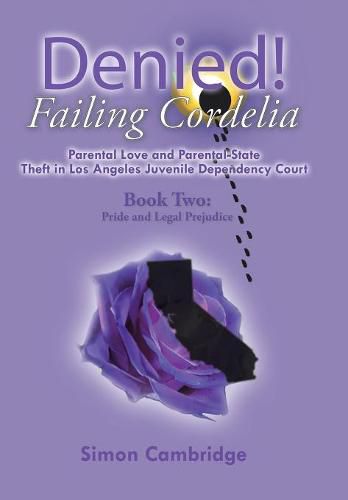Readings Newsletter
Become a Readings Member to make your shopping experience even easier.
Sign in or sign up for free!
You’re not far away from qualifying for FREE standard shipping within Australia
You’ve qualified for FREE standard shipping within Australia
The cart is loading…






This title is printed to order. This book may have been self-published. If so, we cannot guarantee the quality of the content. In the main most books will have gone through the editing process however some may not. We therefore suggest that you be aware of this before ordering this book. If in doubt check either the author or publisher’s details as we are unable to accept any returns unless they are faulty. Please contact us if you have any questions.
Pride and Legal Prejudice is the second part of a trilogy covering the author’s efforts to parent and advocate for his adopted child with severe attachment issues in both Seattle and Los Angeles. Readers will be able to see here how his tenacious efforts to help his daughter would end up being denied or invalidated by the child-welfare legal complex in Los Angeles. How the author fought with pride against the legal prejudice that he and his daughter endured during their traumatic three-year dependency court case in Los Angeles will become the focus of this second volume.
The author will conclude that reunifying successfully with one’s child in any dependency case needs to involve more than just being willing to complete an assigned case plan or keeping up with visitation demands. Beyond these worthy goals, Cambridge will be exploring the many ways in which a strong and motivated legal team that is just as intent on the goal of reunification as the parent, is of paramount importance.
Cambridge believes that while he was able to retain his parental rights at the end of their long case, he and his daughter could have forestalled much lasting trauma if their assigned social workers and therapists had been able to see better and if the presiding commissioner of his case had been less prejudiced.
The author was left still trying to reach his troubled daughter when their dependency case ended. Readers will be able to judge the extent to which he succeeded or made progress in his final volume.
$9.00 standard shipping within Australia
FREE standard shipping within Australia for orders over $100.00
Express & International shipping calculated at checkout
This title is printed to order. This book may have been self-published. If so, we cannot guarantee the quality of the content. In the main most books will have gone through the editing process however some may not. We therefore suggest that you be aware of this before ordering this book. If in doubt check either the author or publisher’s details as we are unable to accept any returns unless they are faulty. Please contact us if you have any questions.
Pride and Legal Prejudice is the second part of a trilogy covering the author’s efforts to parent and advocate for his adopted child with severe attachment issues in both Seattle and Los Angeles. Readers will be able to see here how his tenacious efforts to help his daughter would end up being denied or invalidated by the child-welfare legal complex in Los Angeles. How the author fought with pride against the legal prejudice that he and his daughter endured during their traumatic three-year dependency court case in Los Angeles will become the focus of this second volume.
The author will conclude that reunifying successfully with one’s child in any dependency case needs to involve more than just being willing to complete an assigned case plan or keeping up with visitation demands. Beyond these worthy goals, Cambridge will be exploring the many ways in which a strong and motivated legal team that is just as intent on the goal of reunification as the parent, is of paramount importance.
Cambridge believes that while he was able to retain his parental rights at the end of their long case, he and his daughter could have forestalled much lasting trauma if their assigned social workers and therapists had been able to see better and if the presiding commissioner of his case had been less prejudiced.
The author was left still trying to reach his troubled daughter when their dependency case ended. Readers will be able to judge the extent to which he succeeded or made progress in his final volume.